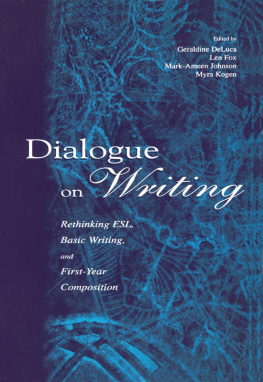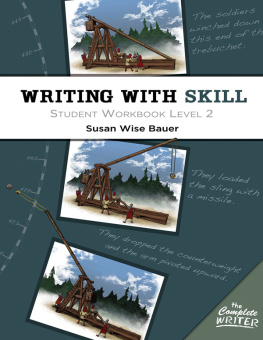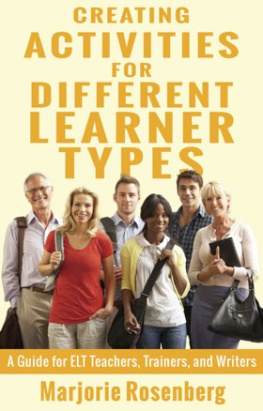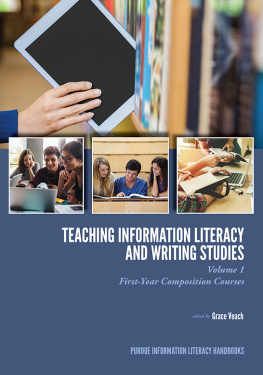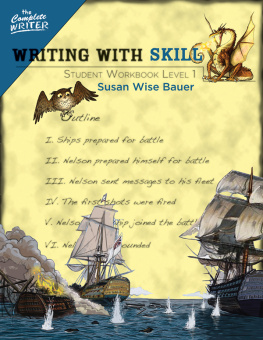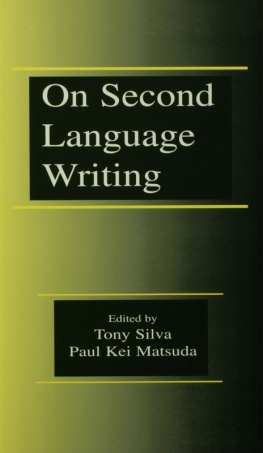DIALOGUE ON WRITING
Rethinking ESL, Basic Writing, and First-Year Composition
DIALOGUE ON WRITING
Rethinking ESL, Basic Writing, and First-Year Composition
Edited by
Geraldine DeLuca
Len Fox
Mark-Ameen Johnson
Brooklyn College, CUNY
Myra Kogen
Brooklyn College Learning Center, New York

Senior Acquisitions Editor:
Textbook Marketing Manager:
Assistant Editor:
Cover Design:
Textbook Production Manager:
Full-Service & Composition:
Text and Cover Printer:
Naomi Silverman
Marisol Kozlovski
Lori Hawver
Kathryn Houghtaling Lacey
Paul Smolenski
Black Dot Group/An AGT Company
Hamilton Printing Company
Copyright 2002 by Lawrence Erlbaum Associates, Inc.
All rights reserved. No part of the book may be reproduced in any form, by photostat, microform, retrieval system, or any other means, without the prior written permission of the publisher.
First published by Lawrence Erlbaum Associates, Inc., Publishers
10 Industrial Avenue
Mahwah, New Jersey 07430
This edition published 2012 by Routledge
2 Park Square, Milton Park, Abingdon, Oxon OX14 4RN
Simultaneously published in the USA and Canada by Routledge
711 Third Avenue, New York, NY 10017
Library of Congress Cataloging-in-Publication Data
Dialogue on writing : rethinking ESL, basic writing, and first-year composition / edited by Geraldine DeLuca ... [et al.].
p. cm.
Includes bibliographical references and index.
ISBN 0-8058-3861-9
1. English languageRhetoricStudy and teaching. 2. English language Study and teachingForeign speakers. 3. Report writingStudy and teaching (Higher). 4. Basic writing (Remedial education) I. DeLuca, Geraldine.
PE1404.D44 2001
To my children, Katharine and Jeffrey, for my mother, Rose, and for Don
Geri
To some of my best communication teachers: my wife Ginny, my friends Elaine and Geri, and my students
Len
To Mona Gebara Johnson and Andrew Johnson, precious cornerstones. To my beautiful sister, Lisa Emily Johnson, my foundations second tier. To George Versakos, friend when I had none, Dawn, who shines forth, and their son, Christopher, from Uncle Mark. And, finally, to Thomas DeGeorges, of course, lighthouse in every storm.
Mark
To David
Myra
This anthology grew out a series of discussions by four colleagues who teach composition at Brooklyn College, a branch of the City University of New York. Though we were all working hard to help our students improve their writing, we realized that we were doing the same job from somewhat different perspectives. Geri DeLuca was director of freshman writing and is now coordinator of writing across the curriculum; Len Fox is Professor of English and past director of the ESL program; Myra Kogen directs the college Learning Center, a large-scale peer-tutoring operation; and Mark-Ameen Johnson teaches in ESL and immersion programs and supervises English as a second language (ESL) tutoring. As our conversations continued month after month, we realized that we each had received different training, attended different professional conferences, and made use of certain theories and practices unknown to the others.
We believe Dialogue on Writing: Rethinking ESL, Basic Writing, and First-Year Composition to be the first work that treats these various approaches under one cover. Also, although all four of us teach at Brooklyn College and roughly a quarter of the articles we selected highlight CUNY concerns, readers will find that most of the issues CUNY faculty raise mirror those in academia at large. In addition, our anthology showcases not only the voices of instructors in large universities, but the voices of academics in rural, small-campus colleges and teachers in nonacademic settings as well.
The basis for our selection of articles lies in our collective experience in training writing teachers and tutors. Brooklyn has long required that its part-time instructors take a graduate course in the teaching of freshman composition and that peer tutors attend ongoing workshops that prepare them to help students with writing assignments from across the curriculum. In addition, there are meetings in which writing faculty discuss issues of concern and yearly training sessions on scoring the CUNY writing assessment tests. Another strength of the selections in this anthology is that they reflect the editors different positions within the academyDeLuca and Fox are full professors in the Department of English, Kogen is an administrator in the Office of Undergraduate Studies, and Johnson is an adjunct in the English Department.
Reflecting these different perspectives, the final selection of articles in the book is the result of a careful, not always harmonious, process of give and take. Fox proposed a table of contents and produced a stack of photocopies much larger than those that eventually became Dialogue on Writing. Kogen, DeLuca, and Johnson made changes, omissions, additions, and clarifications to produce new aims and new lines of thought. Fox contributed a respect for concrete ideas and straightforwardness, Kogen for theoretical writing and complexity. DeLuca championed voices that were alternative, occasionally New Age, and sometimes silenced. Johnson argued for the inclusion of adjuncts perspectives and concerns, which are often dismissed by tenured faculty. In short, we were eager to grow and be mutually supportive but were equally stubborn in arguing our individual points.
Thus our four-way dialogue played out. Our own diversity and academic peccadilloes proved to be our teams strength. After 3 years, 300 plus articles, and more letters and e-mail than any of us could keep track of, we selected 28 articles organized into 4 basic sections. We decided that readers would appreciate overviews and DeLuca wrote four separate introductory essays explaining the relationship among the articles in each section. The articles we selected and the questions that follow them are suggestions for pedagogy and invitations for exploration. We hope that both the articles and the questions will spark both animated group dialogue and private inner dialogue. We strongly encourage readers to be Socratic and challenge everything they readbut also to remember that the experienced teachertheorists represented here have learned a thing or two in the trenches.
Although we did our best to present both key ideas and alternative views, our biases may manifest themselves from time to time. In a perfect anthology, that might not happen. But as DeLuca has often reminded the rest of us: There is no perfect anthology. This is the good enough anthology. We, your good enough editors, have selected the articles we thought best, but we do not claim that either we or our selected writers have a monopoly on truth. We invite you to look for instances where truths are hidden, disguised, distorted, half-baked, or fully cooked and burned. But remember also the point that James Berlin makes in Rhetoric and Reality, that rhetoric for most English instructors has often meant one theory and one theory only, whereas many useful alternative models have gone largely unnoticed.
Acknowledgments
We would like to thank Naomi Silverman, Editor at Lawrence Erlbaum, for taking on this project, for believing in it, and for offering us her astute advice as we compiled this collection. Many thanks also to Lori Hawver, her assistant, for carefully attending to endless details, and our gratitude to Sandy Reinhard and the Black Dot Group for meticulously editing the proofs. Thanks to Susan Barker, Promotion Coordinator, and to Paul Smolenski for his beautiful cover design. And finally, thank you to the following reviewers of the first draft of this manuscript for their time and valuable suggestions for revision: Linda Harklau, University of Georgia; Judith Rodby, California State University; and Chico Carl Whithaus, Stevens Institute of Technology.
Next page
